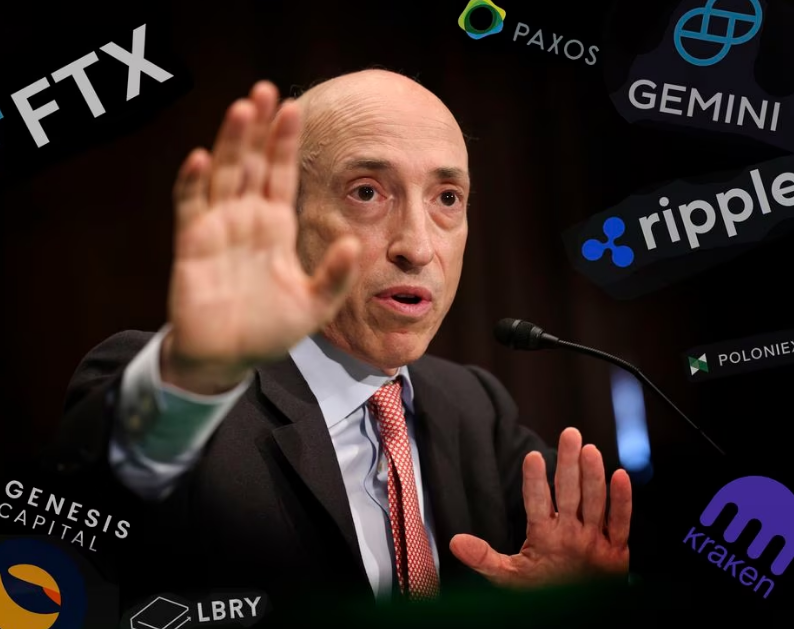
Cryptocurrency companies that have resisted regulatory scrutiny in the United States by claiming that digital assets are not securities secured a victory in court this week. Ripple Labs received a significant ruling from a federal judge on Thursday, stating that certain sales of Ripple tokens (XRP) by the company do not fall under securities laws.
WHAT DID THE JUDGE SAY ABOUT RIPPLE?
US District Judge Analisa Torres in New York found that some sales of Ripple’s digital tokens do not violate the law, contrary to the US Securities and Exchange Commission’s (SEC) claims. The SEC filed a lawsuit against Ripple for conducting an unregistered $1.3 billion XRP offering from 2013 to 2020.
Torres ruled that Ripple’s sales on public exchanges to retail investors do not constitute offers of securities under the law since buyers did not have a reasonable expectation of profits linked to Ripple’s efforts.
According to her, these sales were “blind transactions of purchase/sale,” in which buyers “could not know whether their payments went to Ripple or any other XRP seller.”
This marked a major victory for the cryptocurrency company in the SEC case. The regulator achieved a partial win as well, as Torres also ruled that Ripple violated securities laws when selling XRP directly to sophisticated investors such as hedge funds.
WHAT DOES THE SEC ASSERT?
The regulator has initiated over 100 enforcement actions against cryptocurrency companies, asserting that digital assets are securities.
The most significant case was filed this year, with the SEC alleging that Coinbase, the largest US cryptocurrency platform, allowed users to trade at least 13 crypto assets that should have been registered as securities, including tokens such as Solana, Cardano, and Polygon. Coinbase has denied the allegations.
Industry players argue that most cryptocurrencies, which operate on a blockchain, a decentralized network of computers, do not meet the legal definition of securities in the US. They say that the SEC has been vague and inconsistent and have called for new rules or laws to be enacted.
WHAT IS THE LEGAL DEFINITION OF “SECURITY” IN US LEGISLATION?
The SEC claims that crypto assets are securities, citing a 1946 US Supreme Court case involving investors in Florida orange groves owned by WJ Howey Co.
The court ruled that an “investment of money in a common enterprise with profits to come solely from the efforts of others” is a type of security known as an investment contract.
It stated that the Securities and Exchange Commission has jurisdiction to prevent the sale of Howey interests to out-of-state investors of plots of land with contracts for a share of the profits from the crop.
Securities, unlike assets such as commodities, are heavily regulated and require detailed disclosure of information to inform investors about potential risks.
WHAT HAVE OTHER JUDGES SAID?
Many of the SEC’s cryptocurrency-related cases have resulted in settlements, with companies paying fines and agreeing to comply with US laws or exiting the US market.
Prior to Ripple’s ruling, judges in several cases sided with the SEC, agreeing that certain crypto assets were securities.
These rulings noted that developers’ statements linking the value of their digital assets to efforts in developing or servicing associated blockchain systems demonstrated that investors’ profits depended on the “efforts of others.”
The courts also determined that investors in these assets participated in a “common enterprise” because their funds were pooled by the token issuer and used for the development of the respective systems.
WHAT ABOUT BITCOIN?
Bitcoin is not considered a security because its anonymous origins and open-source code mean that investors’ profits are not dependent on the efforts of developers or managers, said Carol Goforth, a law professor at the University of Arkansas.
Some blockchain projects have attempted to finance their operations in two stages, offering securities in accordance with SEC rules and then providing or selling cryptocurrency to those investors after creating a functional blockchain.
Goforth stated that developers hoped this approach would remove the “common enterprise” element, but she added that the SEC has never clarified what it would take to transform a security into a non-security.




